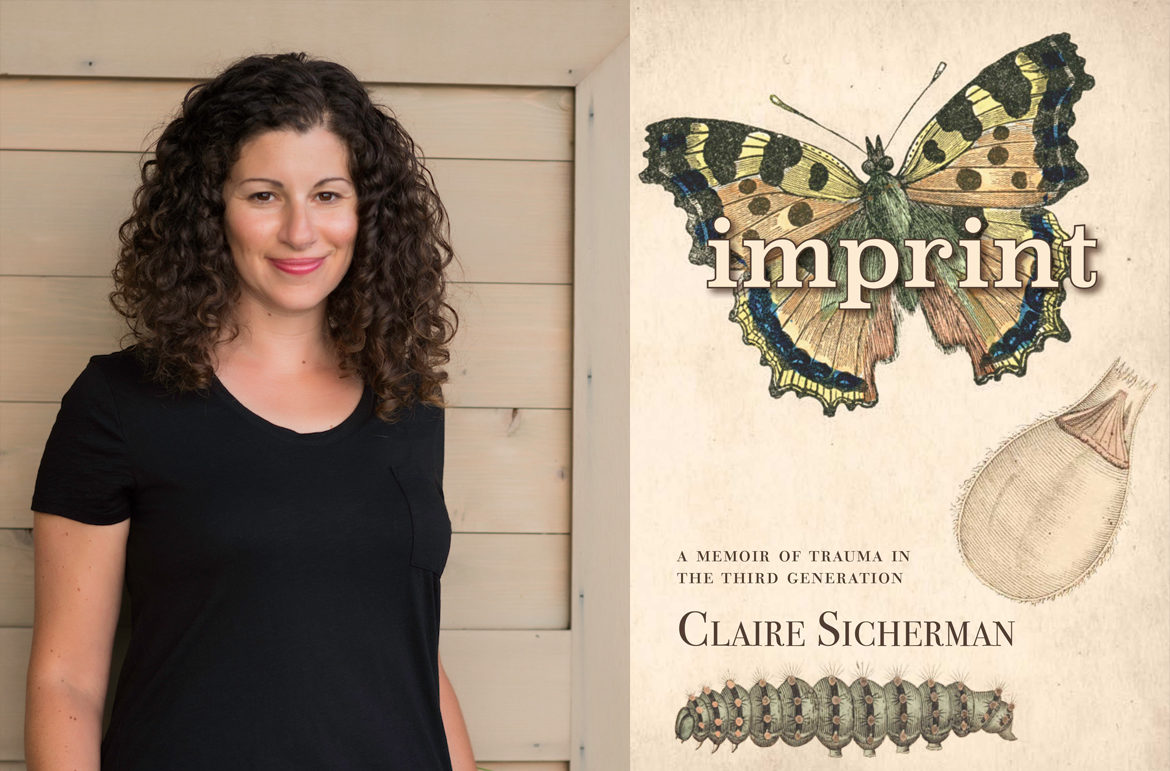Claire Sicherman grew up with almost no knowledge of the Holocaust’s impact on her specific family. Now as a mother herself, without the language to explain it to her young son. In her memoir, Imprint: A Memoir of Trauma in the Third Generation (Caitlin Press), Sicherman explores the intergenerational effects of trauma to weave a story that not only honours her ancestors but offers the truth to the next generation, including her son.
“Grief is a fascinating thing. It can take us to places we never imagine we’d go. It can twist and turn us into tiny little rigid knots and it can pick us up, throw us around, squeeze us, and wring us out until it feels like there’s nothing left. When my grandmother died at the age of 102, I didn’t know what to do with my feelings. I didn’t know how to feel those feelings. The grief was overwhelming. I wasn’t only mourning her death, but grieving the loss of the stories that I knew, and the ones that I didn’t know, the ones that would be buried with her.
The grief was overwhelming. I wasn’t only mourning her death, but grieving the loss of the stories that I knew, and the ones that I didn’t know, the ones that would be buried with her.
My grandmother, who survived the Holocaust, the Communists, life as a refugee, the suicide of her husband, and two broken hips. I didn’t want these stories to die with her. Stories of trauma, fragments, pieces that were simmering just below my skin, as if waiting impatiently to erupt, to surface. These were the voices of my ancestors, the ones who didn’t survive. But they were also the voices of my grandparents, the two family members that did survive. My ancestors were calling me to tell their stories, as best I could, with what little information I had.
Writing this book was also a way for me to tell my nine-year-old son about the Holocaust and about his own birth story. My son almost died when he was born. He was born without breath. My ancestors had their breath stolen from them when they were gassed to death. How was I to tell my son the story of his traumatic birth? How was I to tell him about the murder of most of his family? How was I to talk to him about genocide?
Writing was my way in, as it is for so many people. When we meet the page with our hearts open, with our blood and tears and sweat. When we take our traumatic experiences, both those that we carry from previous generations, and those that are our own, and we write or paint, or sing, or dance, we are taking something tragic and we are making meaning by turning our pain into something searingly beautiful.
Writing was a way for me to break the silence that surrounded my family’s stories. It was a way for me to remember my ancestors, a way to honour them, a way to keep always remembering them.
To never forget.”
Claire Sicherman is a graduate of the creative non-fiction program at The Humber School for Writers. Her work has appeared in the anthology Sustenance: Writers from B.C. and Beyond on the Subject of Food (Anvil Press), and on Zathom.com. She lives with her husband and son on Salt Spring Island, British Columbia.
Claire will be launching her book at several events this spring. Join her on Salt Spring Island on January 25, at the Vancouver Public Library’s Oakridge branch on February 2, February 4 at Temple Shalom in Vancouver, and on March 22 at Banyen Books.


2 replies on “Claire Sicherman: “Writing was a way for me to break the silence that surrounded my family’s stories””
How can I get
A copy of Claire’s book?
I saw her present at last weekend’s Holocaust Survivors conference
Hi Naomi!
You can try your local independent bookstore (click here for a list) or order directly from the publisher, Caitlin Press (click here for that link)